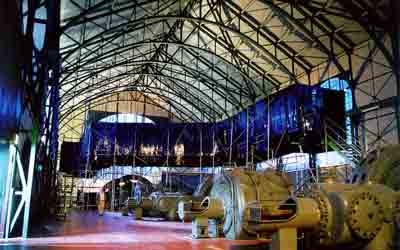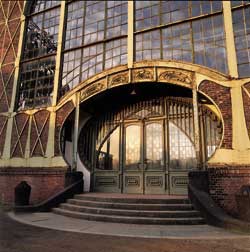

The coal tunnel has no architecture. Its walls consist of the stuff the mine produces. It has no exterior, an interior sculpted entirely by functionality, surfaces that are nothing but raw materials, and a shape that must follow the coal seam wherever it goes and stop when the seam stops. Its floor and ceiling are designed not for support or shelter, but simply to give access to the walls. It is dark and free of images.
The architecture of Tunnel reverses these aspects of the coal tunnel, making visible the latent assumptions that define it. It is a tunnel in the air that requires supporting struts and enclosing walls. And yet the experience of being inside it is not unlike that of being in an underground tunnel. Vertigo replaces claustrophobia. The work speaks about progress, conformity, and time.
As the visitor traverses Tunnel, a person appears underfoot. Viewed from above, the crown of the head and shoulders are visible. He or she is walking at approximately the same speed as the viewer. It is a ghost from underground, an avatar. Like the visitors to Tunnel, the avatars walk in single file. As long as the visitor keeps moving forward, his ghost walks along too, and each visitor has his or her own avatar.
As the tunnel gets crowded, the `virtual space' beneath it gets crowded also. When the viewer stops, those in the world below stop too. When the viewer moves against the flow of traffic, the images below change, giving, for a moment, a glimpse of a parallel universe, populated with strange creatures, fires, and floods. Only by breaking the rules does this world become visible.
